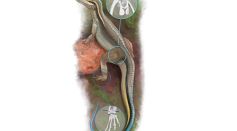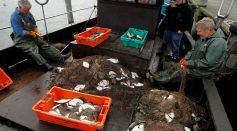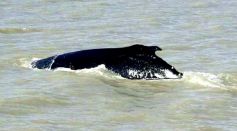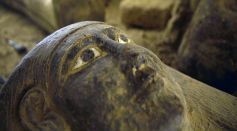ENVIRONMENT & CLIMATE
Genetic Composition of Social Environment Influences Behavior Among Zebrafish
UN General Assembly: China Commits to Becoming Carbon Neutral by 2060
Alan Turing's Pattern Theory Explains the Formation of Fairy Circles
New Species of Truffles Discovered Thanks to Mushroom-Munching Bonobos

Are Plug-in Hybrid Cars Worse for Environment Than Factory Tests Suggest? It Depends How You Drive Them
Evolution of Radio-Resistant Strains of Bacteria Revealed More Complex Mutations
Around 270 Stranded Whales Continue to be Rescued in a Mass Beaching
Rare Seven-Armed Octopus Found on Washington Beach

Scientists Look Into How Crocodiles & Birds Became Separate Species

Monarch Butterflies' Spectacular Migration Is at Risk – an Ambitious New Plan Aims To Help Save It

Australian Researchers Aim For Global Conservative Policies to Protect Endangered Marine Species

Humpback Whale Found Its Way Back To Sea After Getting Lost in Crocodile-Infested River

27 Stone Tombs Discovered in One of Egypt's Prominent Necropolis

Rare Javan Rhino Calves Sighted in Indonesia's Ujung Kulon National Park
Most Popular

Blood Moon to Appear During Total Lunar Eclipse on March 3, 2026

NASA Reveals an Astronaut Was Medically Evacuated From the ISS for the First Time After a Non-Emergency Health Scare

The Science of Aging: What Cellular Aging and Telomeres Reveal About Human Longevity

How Volcanoes Destroy, Build Land, and Shape Earth's Surface and Climate





